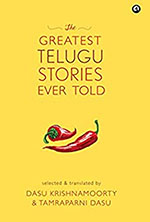Telugu is one of the six select languages that were accorded the ‘classical language’ status in India. It was the second most spoken scheduled language till the 1981 Census (it has since slipped to the fourth position in the latest Census of 2011). In 1953, Andhra State became the first State in the country to be formed on a linguistic basis. These distinctions notwithstanding, Telugu—as a language, literature, and culture—figures poorly in the national, not to speak of the global, literary imaginary. It is interesting how often ‘Telugu’ is misspelt (mostly as ‘Telegu’) and mispronounced (mostly as ‘Tail-gu’), even by those who should know better. Gone may be the days when everyone south of the Vindhyas was called a ‘Madrasi’; but even today not many people are sure whether ‘Andhra’ is a region, State, or language. The examples may vary but the sad reality is that the collective identity of Telugu goes largely unremarked.
In relation to English in India, all Indian languages are unequal, but all inequalities are not equal. Some Indian languages—like Bangla and Tamil—have a historical advantage, while others—like Hindi—enjoy official patronage. Among the rest, some—like Kannada and Malayalam—have been served well by their bi-lingual scholars and translators in securing a place in the linguistic hierarchy. In contrast, even the foundational texts in Telugu are often unknown to non-Telugu readers and even the few that are translated have failed to make an impact because of either poor translation or poor marketing.
Against this bleak background, the recent publication of two anthologies of Telugu short stories by mainstream publishers (Aleph and HarperCollins) is indeed most welcome. The Telugu short story is more than a century old, and any selection is bound to be subjective and arbitrary.

